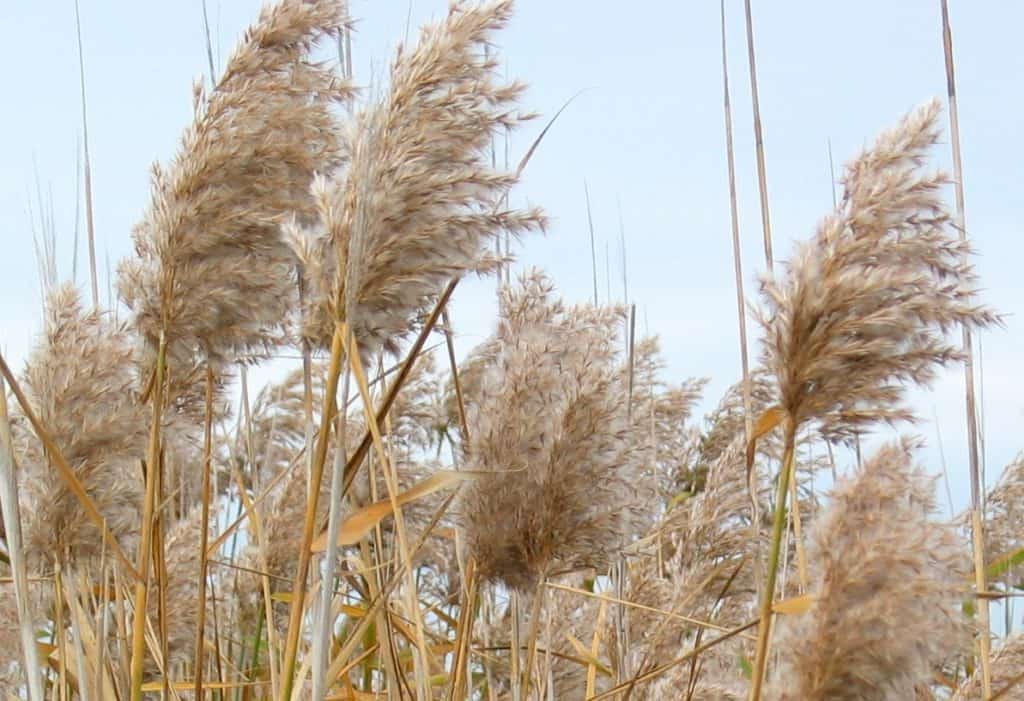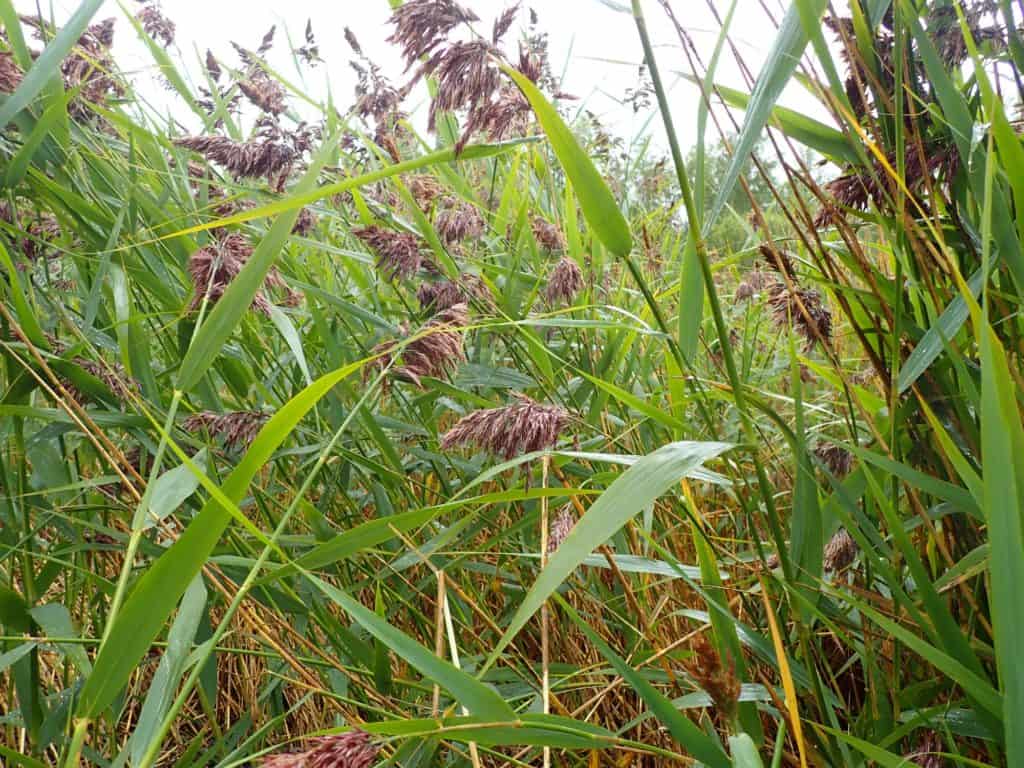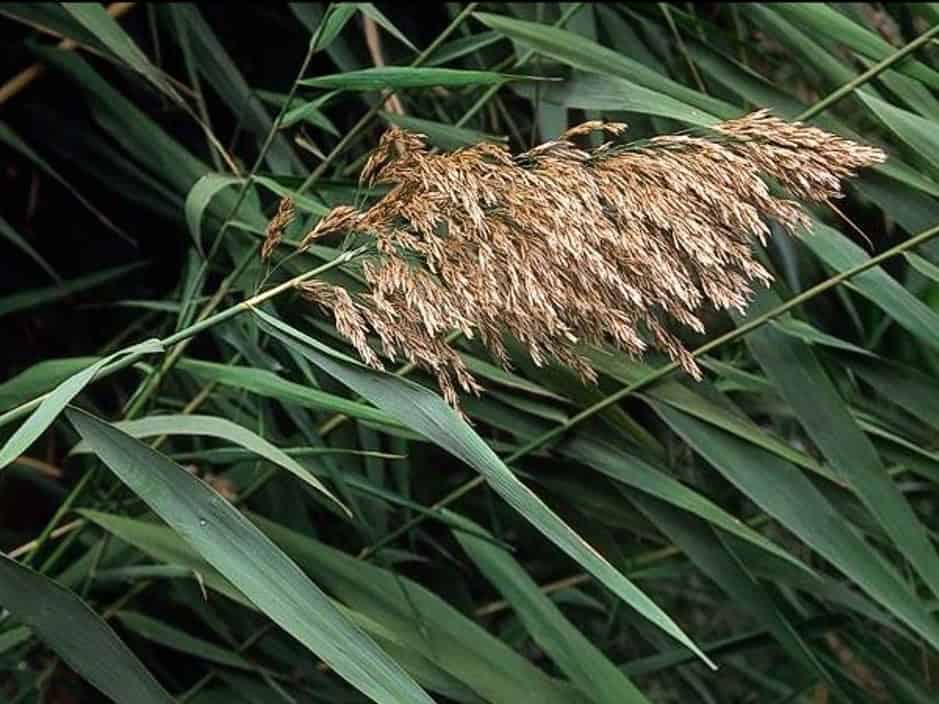Phragmites
weed identification
Semi-aquatic perennial grass with thick, fleshy rhizomes, leafy stems to 3m high and about 2cm wide. Leaves are smooth and flat or loosely inrolled, to 80cm long and 4 cm wide. Flower-heads are large ovoid, dense panicles from 10-40cm long. Spikelets are 3-8 flowered and 10-18cm long with a tuft of fine silky hairs at the base of the upper flowers in each spikelet.
Common on the edges of lakes, swamps and watercourses and on poorly drained flats. Tolerant of high salinity, waterlogging and acid sulphate soils.
Reproduces via seed and can spread via horizontal runners. Flowering time: Late summer
Water disperses seeds.
Good grazing plant for livestock. Phragmites keeps more pollutants in its roots, sequestering them from the rest of the ecosystem.
What does Phragmites look like?
Disadvantages of Phragmites
Full coverage of a pond or dam by Phragmites is uncommon but may cause issues such as:
- Dense infestations may cause deoxygenation of the water
- May outcompete other aquatic plants
- Dense infestations may cause fish and other aquatic life death
- Common Reed can grow rapidly and will die back over colder seasons which can create concentrations of tinder-dry vegetation that increase potential for fast-spreading fires.
treatment
AQ200 Aquatic Herbicide + Wetting Agent – Chemical Herbicide designed to kill emergent weeds quickly. Use on mild to severe infestations.
Aquatic Weed Rake and Razor Combo – DIY physical removal. Ideal for mild infestations, sensitive water bodies or to aid herbicide treatment.
Aquatic Harvesting – Large amphibious machine that cuts and clears emergent aquatic weeds. Book this service for severe infestations or for larger water bodies.
prevention options
Aerating Fountains – Reduces the severity and likelihood of aquatic weed infestations. Use in any body of water.







